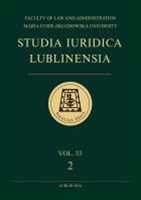Cybereducation in Society – Benefits and Threats
Cybereducation in Society – Benefits and Threats
Author(s): Andrzej PieczywokSubject(s): Sociology of Culture, Sociology of Education, Distance learning / e-learning
Published by: Wydawnictwo Naukowe Uniwersytetu Marii Curie-Sklodowskiej
Keywords: cybereducation; cyber lessons; cybersecurity; threats; benefits;
Summary/Abstract: The author points to an important area of education, as the article refers to cybereducation as an opportunity to acquire, process and share information over the Internet and using computer systems. Cybereducation in society is provided at several levels: family environment, school (academic) environment, professional (workplaces) environment, local government, community organisations, media. The family environment is mainly about teaching children to be sceptical about sharing data online and teaching them how to use a tablet or computer properly. Cybereducation notably includes cyber lessons given by school and university teachers on how to use the Internet safely. Cybereducation also includes services consisting of offering employees a cybersecurity training package. Non-governmental organisations, an essential part of democracy and civil society, play a significant role in cybereducation in society. The media presence used by individuals and entities who are a source of threat to international peace and security is also significant in this regard. The article contains the characteristics of concepts related to cybereducation, describes the threats and benefits to this issue, and contains conclusions for improving the quality of cybereducation.
Journal: Studia Iuridica Lublinensia
- Issue Year: 33/2024
- Issue No: 2
- Page Range: 299-312
- Page Count: 14
- Language: English

